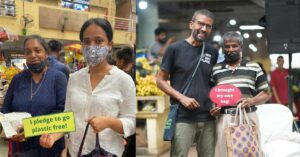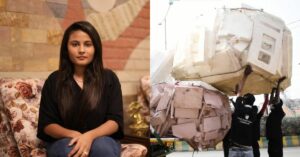Your Old Plastic Bottle Can Become a New Shirt – Through These Mills in Tamil Nadu
This seemingly new trend of recycling plastic bottles into wearable materials is followed since 1996.
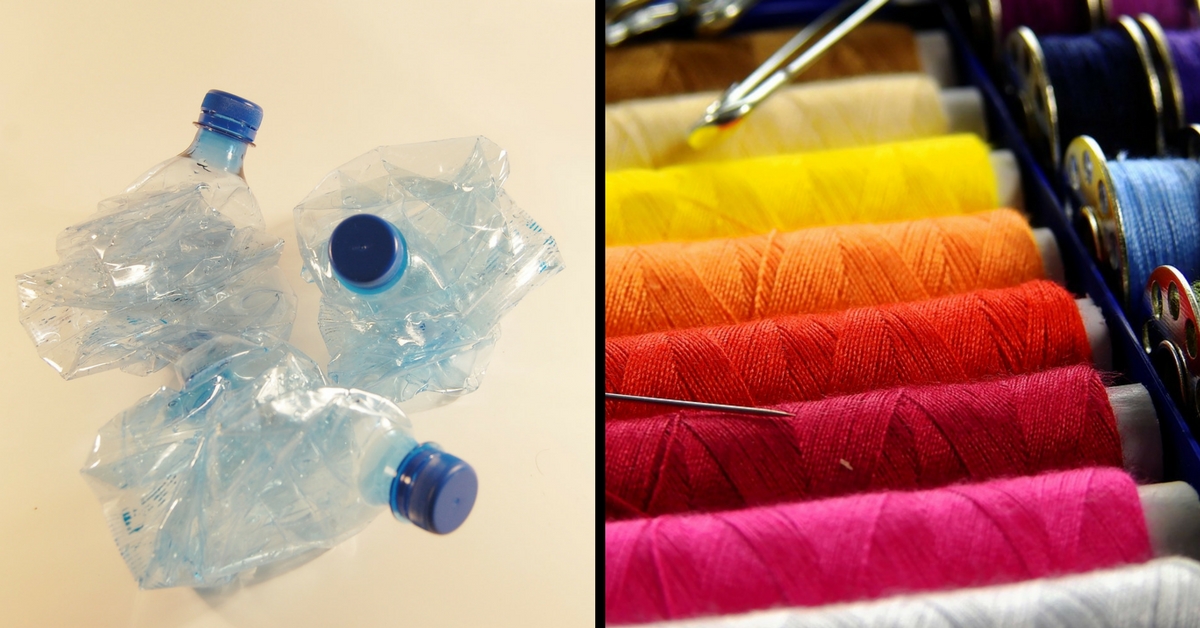
Mineral water, soda, juices and such other liquids are sold in Polyethylene Terephthalate (PET) plastic. After they are used, these bottles are discarded and end up in dumping grounds, where they rest for decades before decomposing.
A few recycling plants in Tamil Nadu are cutting this process midway and giving PET bottles a new end. The bottles will now be filtered, sorted, shredded, cleaned, coloured and recycled to PET fibre. They will then be mixed into hosiery waste and spun together into yarn that will end up in power looms spreading in all of India.
This fibre, made partly from plastic bottles will ultimately be made into garments and towels that will be sold at regular prices in the market. This seemingly new trend of recycling plastic bottles into wearable materials was undertaken by BP Sultania in 1996.
Sultania is the president of the All India Recycled Fibre and Yarn Association and says that the trend started in 2006. “This is because of better awareness and technology, and more applications for recycled fibre,” Sultania told The Hindu.
He says that in India, around 35 companies recycle PET bottles and produce 50,000 tonnes of recycled fibre every month.
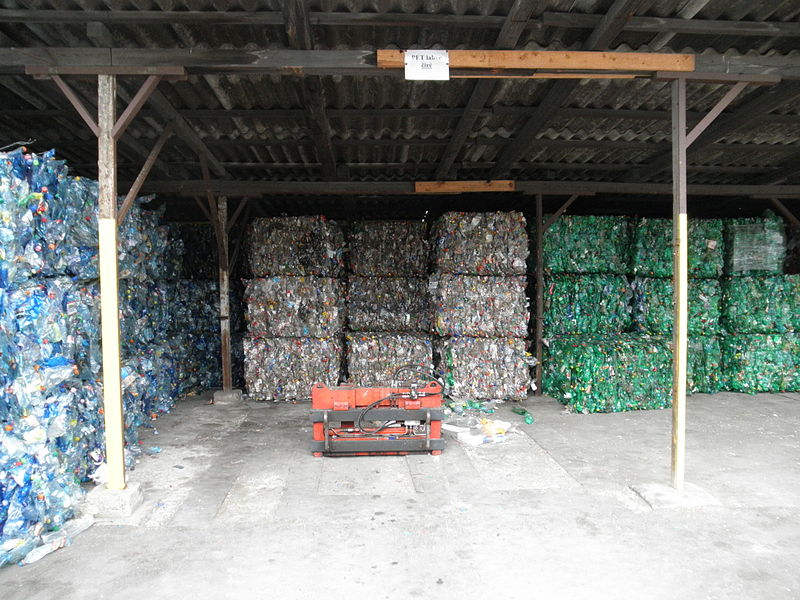
This accounts for about 50% of the total virgin polyester produced in the country.
Recycling PET bottles into the fibre, however, has taken momentum in the last fours years, says G Arulmozhi who owns a mill in Coimbatore that uses both, recycled fibre as well as waste cotton to spin yarn.
You may also like: Use These Plastic Recycling Machines at 10 Mumbai Train Stations and Get Paid for It!
“We usually buy cotton waste from textile mills and use it as raw material. The yarn manufactured by our units is used in powerloom clusters. But issues such as an increase in the price of cotton and fluctuations in the availability of waste cotton made us look at options. The use of recycled fibre instead of 100% cotton waste results in better price and production,” Arulmozhi told The Hindu.
The efficiency of this recycled material is non-compromised. Absorption value, for instance, especially in the towels is maintained even when the raw material of the fibre changes. This material is used for products with a low price too, so the worry of expensive recycled products is eliminated.
Plastic fibre is beneficial for the weavers too since it cuts down their costs of dyeing yarn directly.
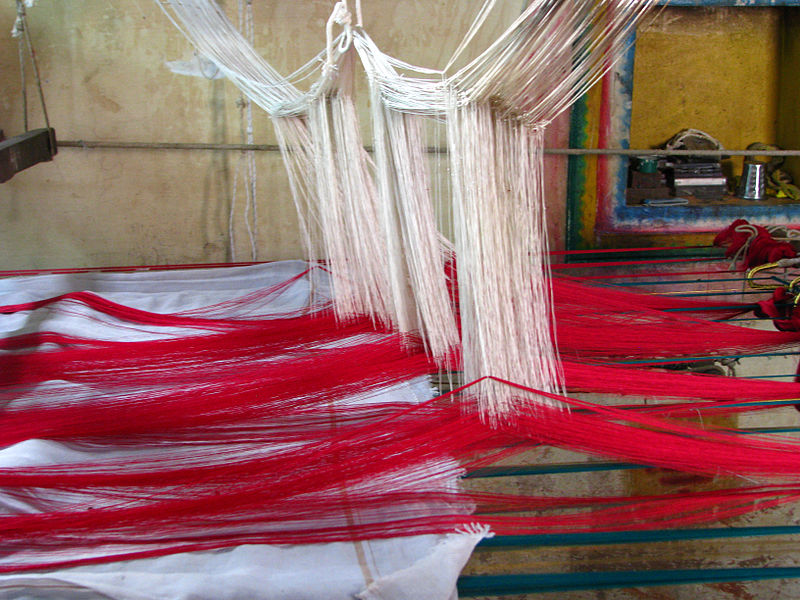
Salvem is a weaver in Chennamalai who spoke to The Hindu about a reduction in their expenses. “Earlier, we used to get yarn from the merchants and send it for dyeing. It would take two or three weeks. Now, we get coloured yarn. We can save Rs 10 for a kilo of yarn. There are 16 to 18 colours. It goes straight into weaving. There are no knots in the yarn, and so there is a smooth finish in the bedsheets.”
You may also like: This Young Man Quit His Job in the US to Solve Tamil Nadu’s Plastic Problem
One of the main challenges that these industries face in the fluctuation of supplies through the year. “It is challenging to get adequate quantities of PET bottles during winter. The government does not permit the import of waste PET bottles,” says Krishna Kumar, owner of a recycling plant in Tiruppur.
Even so, the recycling industry that shreds PET bottles and eventually transforms them into garments is gaining pace in Tamil Nadu. Availability of recycling units coupled with hosiery units in Tiruppur and spinning mills in other districts has enabled an ample supply of such fibre. It has also witnessed a growing demand owing to its uncompromised, if not better, quality and low costs.
Featured image sources: Pxhere/ Pixabay.
Like this story? Or have something to share?
Write to us: [email protected]
Connect with us on Facebook and Twitter.
NEW: Click here to get positive news on WhatsApp!
This story made me
-
97
-
121
-
89
-
167
Tell Us More
We bring stories straight from the heart of India, to inspire millions and create a wave of impact. Our positive movement is growing bigger everyday, and we would love for you to join it.
Please contribute whatever you can, every little penny helps our team in bringing you more stories that support dreams and spread hope.






